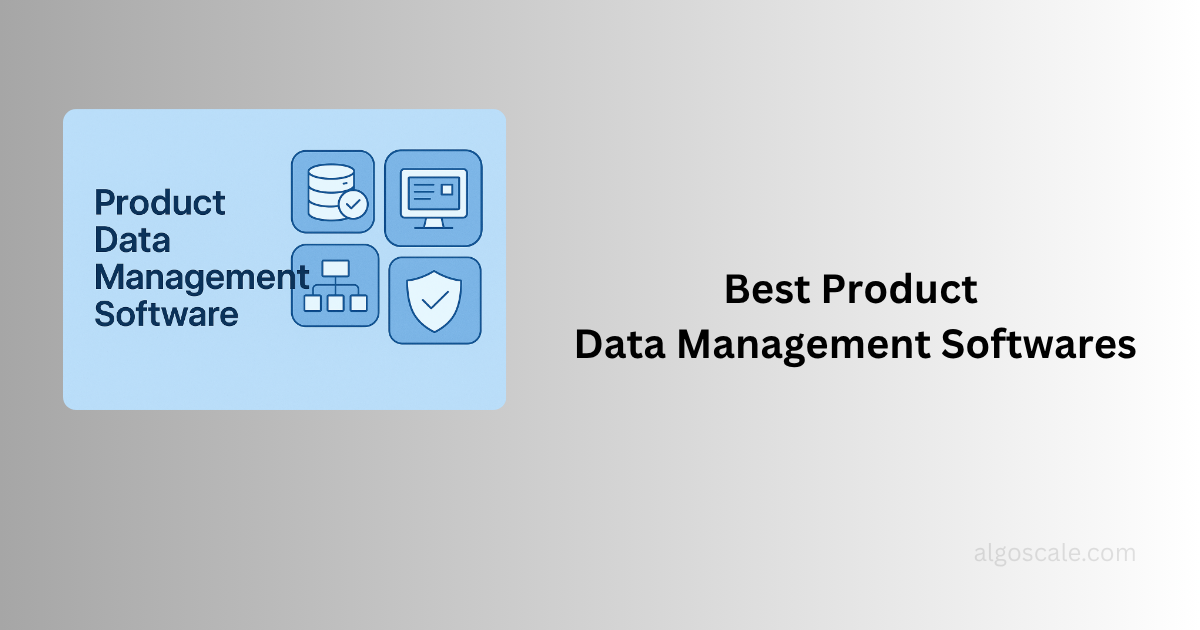The retail landscape has undergone a paradigm shift. Every day, we see a convergence of online and in-person stores, drastically revolutionizing how consumers interact with products. Whether exploring digital storefronts or navigating the aisles of brick-and-mortar establishments, consumers are spoilt for choices.
This abundance of options has also created a significant challenge: steering through a sea of products to find the most relevant one. This struggle has fuelled consumers’ need for personalized shopping experiences, where each interaction is tailored to an individual’s unique needs and preferences. And this is where retail data analytics comes into play.
By using the vast amounts of data available, retailers can better understand their customers and engage with them on a much more personalized level. In today’s blog, we will explore the power of retail data analytics and understand how retailers can leverage it to deliver tailored customer experiences.
The Personalization Imperative
According to McKinsey, 76% of customers are likelier to purchase from brands offering personalized experiences. Additionally, 52% of customers claim that personalization improves their brand satisfaction.
Personalization is one of the most significant trends currently. Personalization lies at the heart of a comprehensive customer experience in today’s hyper-connected yet equally competitive market. Companies of all sizes increasingly focus on delivering personalized experiences to their customers with relevant content, targeted offers, and product recommendations based on their previous actions.
Personalization is much more than just a bonus for doing business. Truly personalized customer experiences foster brand loyalty, boost customer satisfaction, and make people remember your business.
When individuals feel that their needs and preferences are acknowledged and catered to thoughtfully, a solid emotional connection is forged between them and the brand. This connection soon transcends the transactional realms, evolving into a relationship built on trust and understanding.
Numerous successful personalized marketing campaigns within the retail industry demonstrate personalization’s real power. For instance, Amazon’s recommendation engine suggests products to users based on their past purchases and browsing patterns. It has led to a significant increase in sales and customer engagement. Similarly, Starbucks’ app-driven approach to suggesting beverages based on previous orders and location preferences has streamlined the ordering process and elevated customer satisfaction and loyalty.
In contrast, the traditional one-size-fits-all approaches are rapidly losing relevance in today’s fiercely competitive environment. Consumers now expect tailored interactions that resonate with their individual needs and aspirations. Generic messages and offerings often fall flat, lacking the personal touch that modern shoppers seek. And this is why it is becoming imperative for brands to embrace data analytics and AI-powered insights and cater to today’s audience.
How Retail Data Analytics Drives Personalization
Retail data analytics serves as the backbone of personalized shopping experiences. By harnessing the potential power of data-driven insights, retailers can provide tailored suggestions that resonate with individual customers.
Here’s how retail data analytics drives personalization.
- Data collection and integration: Retailers gather data about their customers from multiple sources, such as purchase history, browsing history, social media, loyalty programs, etc. All this data is then consolidated to create comprehensive customer profiles.
- Customer segmentation: Data analytics allows retailers to categorize or segment their customers into distinctive groups based on demographics, behaviors, and preferences. This segmentation makes it easy for retailers to identify specific trends within each group. Furthermore, advanced techniques such as AI and ML allow retailers to identify patterns and predict future behavior, enabling proactive personalization.
- Retailers can offer personalized product recommendations By analyzing a customer’s browsing history and purchase patterns. The recommendations are based on what similar products customers have shown interest in or purchased previously.
- Targeted marketing campaigns: Data analytics for retail can also help to create highly targeted marketing campaigns by personalizing messages to specific customer segments. It increases the relevance of marketing materials and boosts engagement.
- Contextual experiences: Retailers can use data analytics to provide contextual experiences, such as sending location-based offers or suggesting products that align with a customer’s current situation.
- Dynamic pricing: Retail data analytics enables active pricing strategies, adjusting prices based on demand, location, and customer behavior. This personalized pricing approach optimizes revenue while meeting customer expectations.
- Predictive analytics: By leveraging historical data and predictive analytics, retailers can anticipate future trends and preferences, enabling them to personalize offerings proactively.
Real-World Success Stories
Many renowned companies have achieved remarkable sales growth by offering personalized experiences to their customers. Let’s look at some prominent success stories of companies that have raised the bar and redefined customer expectations regarding customized experiences.
- Netflix: Netflix’s AI-powered content recommendations have drastically transformed the entertainment landscape. The company leverages each user’s viewing history and interactions to tailor recommendations. This results in increased user engagement and, ultimately, more excellent subscription retention.
- Nike: Nike has a personalized shoe customization platform, allowing customers to design their pair of Nike kicks. The customers can select their favorite colors, materials, etc., for a customized pair that matches their taste. This brilliant strategy by the brand has helped it forge a solid and personal connection with its customers.
- Sephora: Another famous brand winning by offering personalized shopping experiences is Sephora. Sephora’s loyalty program provides customers with exclusive rewards and tailored product recommendations. It has helped the brand increase customer loyalty and satisfaction.
Algoscale’s Impact on Retail Success
Algoscale is among the leading companies offering robust data analytics solutions to retailers. With widespread experience and knowledge, our experts have helped many retailers succeed through multifaceted strategies beyond just personalized experiences. Here’s how.
Algoscale partnered with Russia’s largest retail chain to leverage data analytics and drive business expansion. Our experts built a powerful solution that helped our client utilize all retail historical data for strategic decision-making. Right from implementing a new data nomenclature system to conducting geospatial analysis and creating a Hybrid Prediction Model, we assisted our client in gaining critical insights into customer preferences and efficiently forecasting sales.
Algoscale also collaborated with the reputed retail giant Walmart to facilitate a seamless transition to an automated business model. We employed System Dynamic Modeling to develop a simulation-based solution that enabled Walmart to predict turnover and staffing needs for better financial planning. The solution achieved impressive accuracy, with a Mean Absolute Percentage Error (MAPE) of around 4-6% for different Distribution Centers in 2017 forecasted data. This unique solution demonstrated Algoscale’s capacity to address intricate challenges and provide actionable insights for Walmart’s successful automated transition.
The Future of Retail Data Analytics
Retail data analytics has the potential to revolutionize the retail industry drastically. As more and more retailers embrace data analytics, they will be able to deliver personalized experiences to their customers, which will further propel brand loyalty.
Personalization is no longer a luxury; it is an expectation. The customers of today increasingly demand tailored interactions and offerings. Retailers must leverage advanced analytics to understand their customers on a granular level and predict and meet their future needs, solidifying loyalty and driving sales.
Apart from personalization, other critical trends driven by data analytics are as follows:
- Predictive and prescriptive analytics: The future of retail data analytics lies in predictive and prescriptive analytics. Retailers will use real-time data to forecast trends, optimize inventory, and adjust strategies dynamically. This predictive foresight and prescriptive insights will enable agile decision-making, minimizing risks and capitalizing on opportunities. [Check out our Predictive analytics services here]
- Omnichannel experience: Retail data analytics will also enable retailers to provide seamless omnichannel experiences to customers. A powerful presence across every touchpoint will further augment customer satisfaction.
- Hyper-personalization: Hyper-personalization is the inevitable future of retail. It involves customizing experiences down to individual levels, thereby boosting customer contentment and loyalty.
Conclusion
In this ever-evolving world of retail, the profound impact of delivering personalized shopping experiences cannot be overstated. As customers seek tailored interactions, the key to retail success lies in leveraging the capabilities of retail data analytics.
At Algoscale, we can help you embrace data-driven personalization and take your retail business to the next level. Our experts can help you build robust data analytics solutions to optimize operations, craft exceptional customer journeys, and thrive in a data-driven era. Contact us today to schedule a consultation.











